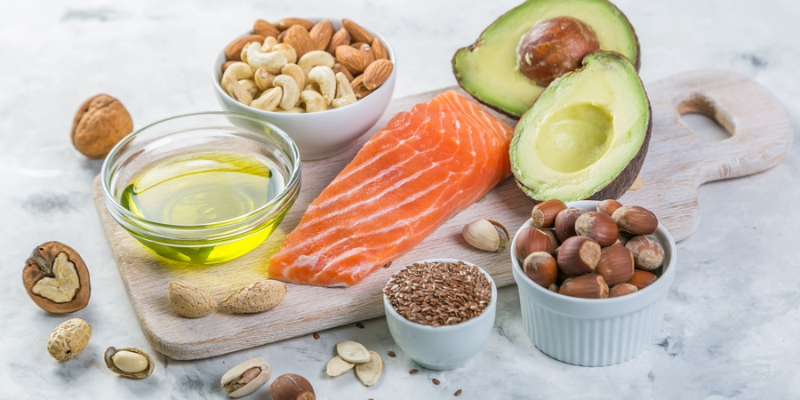The old adage, “You are what you eat,” isn’t just a folksy piece of advice. It’s a reflection of the fundamental role nutrition plays in our overall health and well-being. For athletes, the significance of nutrition is magnified. Just as a gambler relies on the website National Casino to provide a premium gaming experience, athletes depend on the right nutrition to deliver peak performance. What they consume directly affects their athletic performance, recovery, and overall health. In this article, we delve into the science of nutrition and unravel its implications for athletic prowess.
Macronutrients: The Big Three
The primary energy sources of our body are macronutrients, and they are categorized into three: carbohydrates, proteins, and fats.
- Carbohydrates: Carbs are the primary fuel source for athletes. When ingested, carbs are broken down into glucose, which is then used for immediate energy or stored in the muscles and liver as glycogen. During short-duration, high-intensity activities, stored glycogen is the primary energy source.
- Proteins: Essential for muscle repair and growth, proteins consist of amino acids, the building blocks of our body. For athletes, protein is vital for recovery and the maintenance of muscle mass.
- Fats: Especially crucial for endurance sports, fats become a significant energy source when carbohydrate resources wane.
Micronutrients: The Unsung Heroes
Vitamins and minerals, though required in smaller amounts, are essential for metabolic processes, bone health, and the prevention of oxidative stress. Calcium and vitamin D are critical for bone health, while antioxidants like vitamin C and E can help reduce muscle damage.
Hydration: More Than Just Water
Dehydration can drastically reduce athletic performance. Water assists in nutrient transport, thermoregulation, and joint lubrication. Electrolytes, like sodium and potassium, help in maintaining fluid balance and muscle function. For athletes, staying hydrated and maintaining the right balance of electrolytes can be the difference between victory and defeat.
The Timing: When to Eat?
- Pre-Exercise: Consuming carbohydrates before exercising can top up glycogen stores, ensuring that the athlete has adequate energy. A small amount of protein can also help reduce muscle damage.
- During Exercise: For prolonged activities, consuming carbs can help maintain blood glucose levels. Electrolyte-containing beverages can prevent cramps and dehydration.
- Post-Exercise: A combination of carbs and protein post-exercise can aid in replenishing glycogen stores and muscle repair, respectively.
Dietary Supplements and Athletic Performance
Many athletes turn to supplements to boost performance. Here’s a brief rundown:
- Creatine: Can enhance performance in high-intensity, short-duration activities like sprinting.
- Branched-Chain Amino Acids (BCAAs): May reduce muscle damage and improve recovery.
- Beta-Alanine: Helps produce carnosine, which can improve performance in short to medium-duration high-intensity activities.
- Caffeine: Known to enhance endurance and reduce perceived effort.
However, athletes should always consult with a healthcare professional before starting any supplements.
Nutritional Strategies for Different Athletes
- Endurance Athletes: They need to focus on high-carbohydrate diets to fill glycogen stores. Fat adaptation, where athletes train their bodies to use fat as the primary energy source, is also gaining traction.
- Strength and Power Athletes: Protein intake is crucial to support muscle growth and repair. Adequate carbs are also essential for energy during training sessions.
- Team Sport Athletes: A balanced intake of carbs, proteins, and fats is essential, depending on the sport’s specific demands.
In Conclusion
The role of nutrition in the world of athletics is both vast and nuanced. Beyond just fuelling the body, it has the potential to shape an athlete’s performance, recovery rate, and even longevity in their chosen sport. The interplay of macronutrients and micronutrients, complemented by the importance of hydration and timing, offers a complex yet exciting field for athletes and professionals to navigate.
In our modern age, where athletic competition continuously evolves and intensifies, the need for comprehensive and adaptive nutritional strategies is greater than ever. It’s not just about consuming calories; it’s about making every calorie count. Each food choice can be viewed as an investment in an athlete’s body, much like a finely-tuned machine requiring the best quality fuel.
Moreover, as research progresses, we can expect even more tailored recommendations, diving deeper into individualized nutritional needs based on genetics, training regimens, and specific athletic goals. As we look to the future, one thing remains clear: the synergy between nutrition and athletic prowess will continue to be a pivotal area of focus. In essence, to truly flourish in the realm of athletics, one doesn’t simply eat to live; one must eat to thrive.




